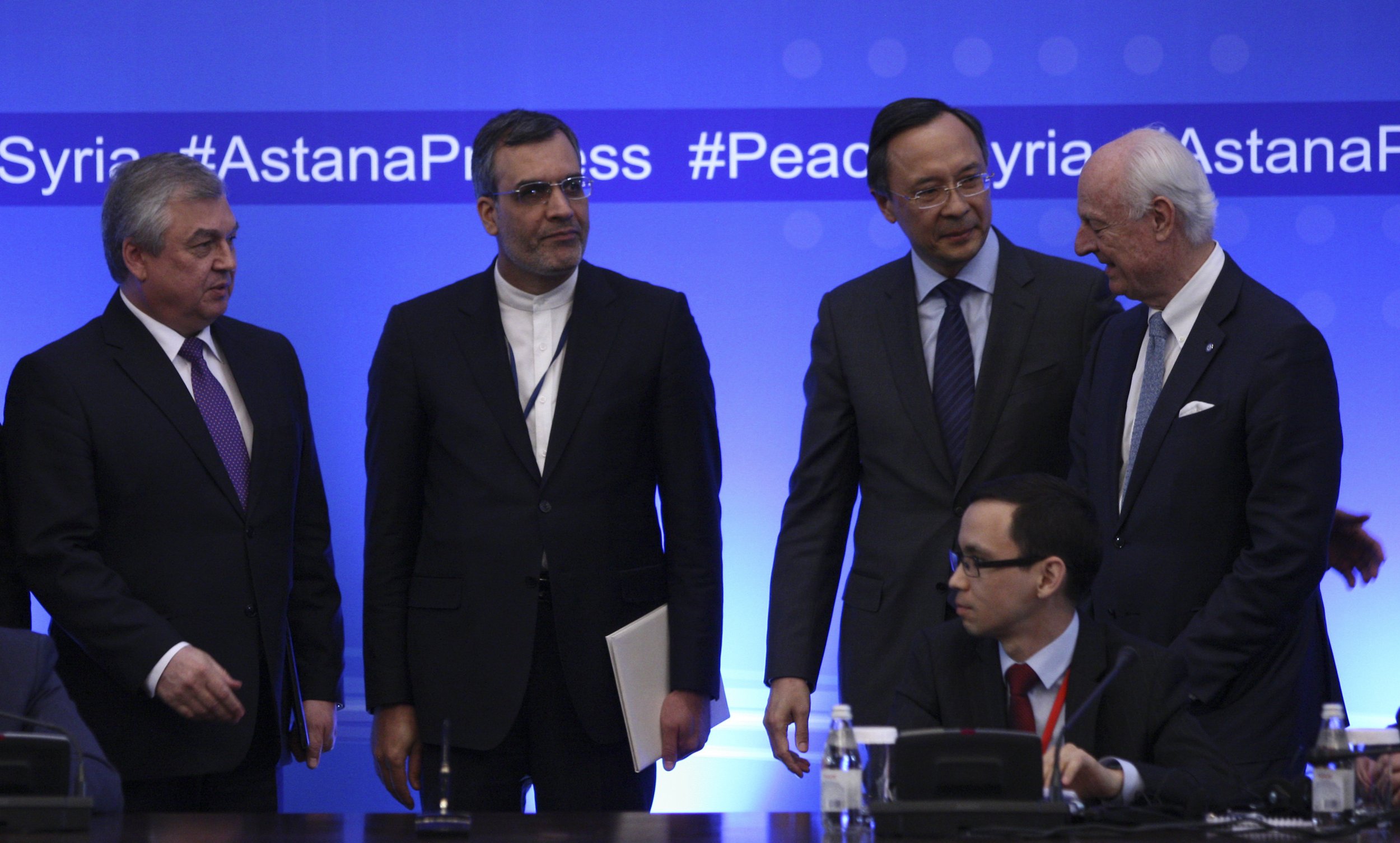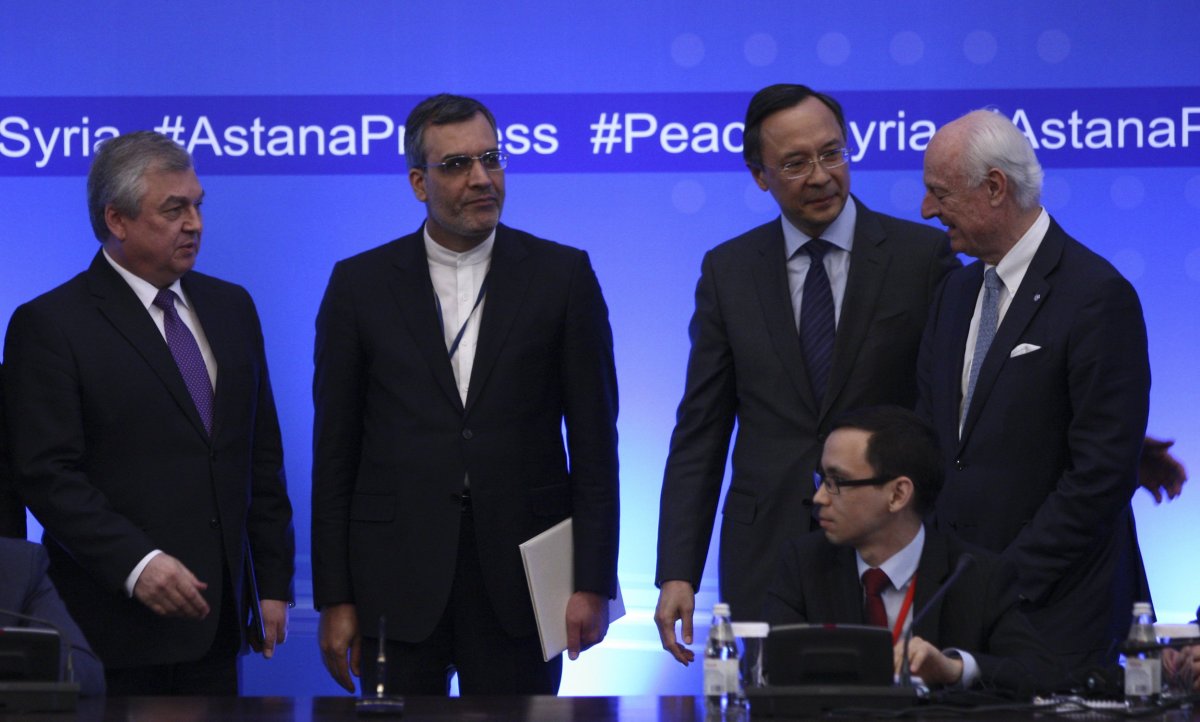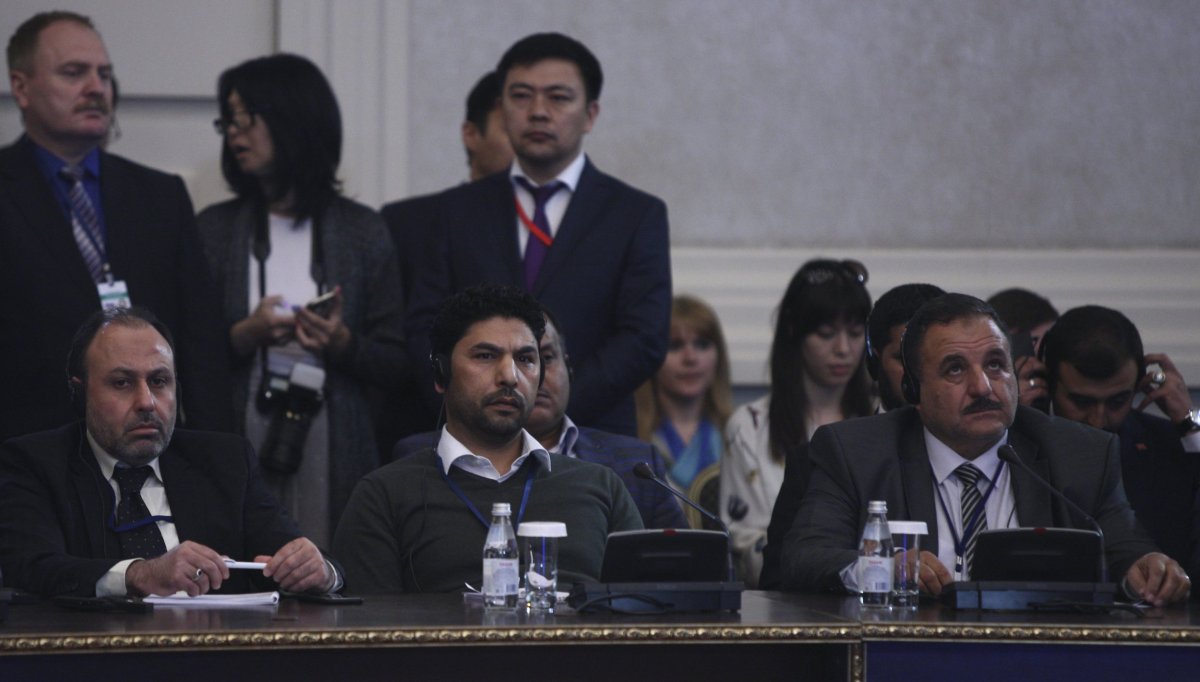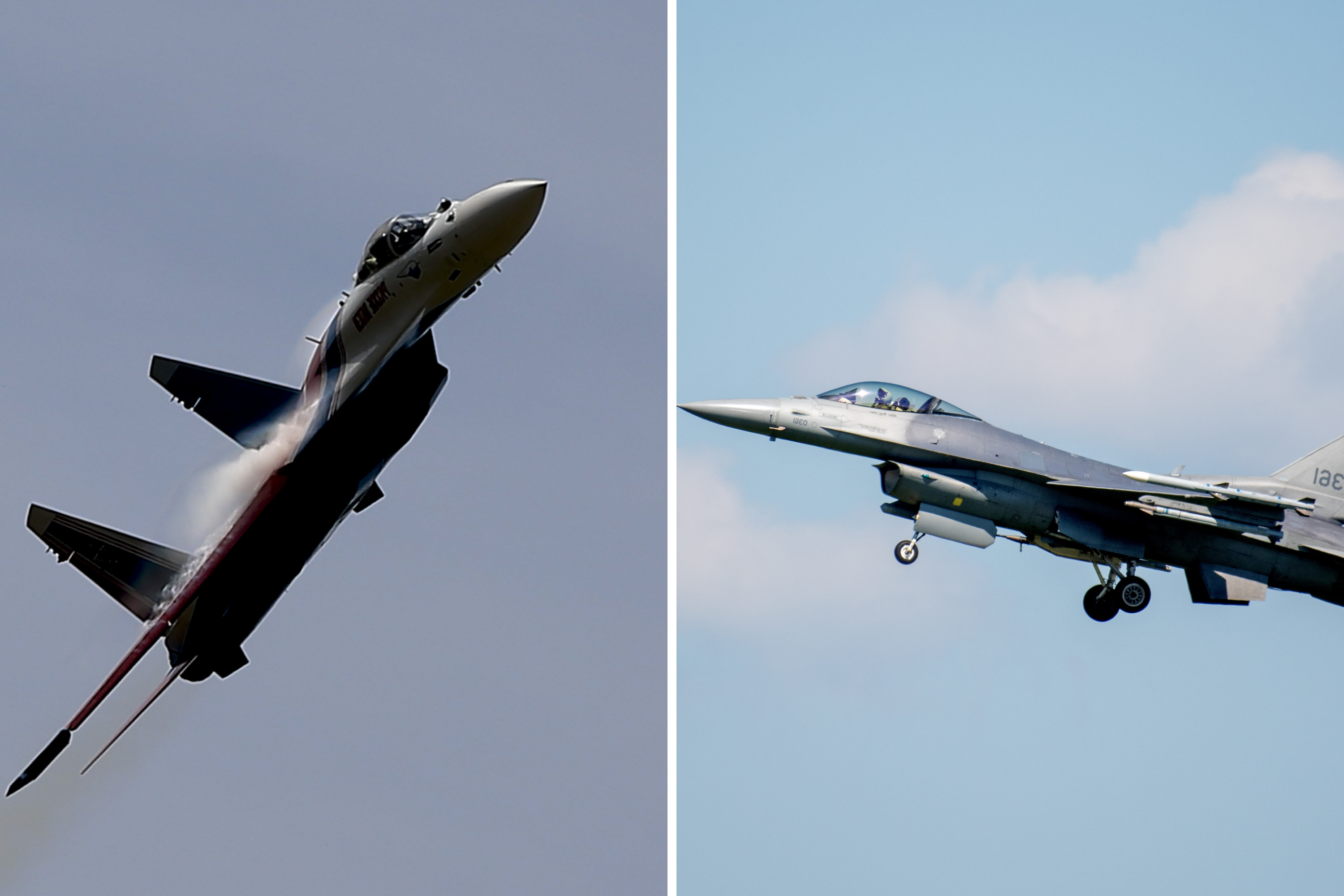
Russia, Iran and Turkey signed a memorandum Thursday backing the establishment of safe zones in Syria as representatives of the Syrian opposition stormed out of peace talks in the Kazakh capital of Astana over Tehran's involvement.
Russia and Iran, which support Syrian President Bashar al-Assad, and Turkey, which backs various rebel groups attempting to overthrow him, have come together to create areas of de-escalation designed to protect civilians from ongoing violence between various factions warring since 2011. The three international powers oversee the Astana peace process between the Syrian government and the opposition and are attempting to seek a diplomatic solution to the six-year conflict. Iran's participation in the most recent round of talks, however, caused some opposition delegates to exit the room in frustration, Reuters reported.
Related: Hillary Clinton Supported Donald Trump's Airstrike in Syria
Rebels, comprised primarily of Sunni Muslim groups, have frequently criticized majority-Shiite Muslim Iran's support for Assad, whose Alawite background is considered a sect of Shiite Islam, and Lebanese Shiite Muslim militant group Hezbollah, one of the most powerful factions fighting alongside the Syrian army. Opposition members also have decried airstrikes by the Russian and Syrian air forces on rebel-held areas that Moscow and Damascus say are controlled by jihadist groups such as Hayat Tahrir al-Sham, an ultraconservative coalition affiliated with Al-Qaeda.
The entire opposition delegation briefly suspended its participation in talks Wednesday over the continued aerial bombardment, but later returned, according to Reuters. Despite Wednesday's interruption and Thursday's outburst of dissent, the Astana peace process was reportedly still on with Kazakh Foreign Minister Kairat Abdrakhmanov saying the next talks would be held in July.

Prior to Thursday's meeting, Russian President Vladimir Putin went out of his way to secure support for the safe zone initiative from other foreign leaders. Putin met Wednesday with Turkish President Recep Tayyip Erdogan, who staged a military intervention in northern Syria in August on behalf of rebels fighting the Islamic State militant group (ISIS) and Kurdish militias, which have since received U.S. support. A day earlier, Putin spoke with President Donald Trump in a conversation that the Russian leader said concluded with the two heads of state agreeing on safe zones and closer cooperation.
The conversation Tuesday was their first since Trump appeared to rescind his previous support for Russia's position in Syria when he launched a cruise missile strike on a Syrian airbase following allegations of a Syrian state-sponsored chemical attack that Assad and Putin denied responsibility for.
Trump has previously called for creating safe zones in Syria as a means to address the ongoing refugee crisis created by the conflict that has killed hundreds of thousands and displaced millions more. This idea was initially rejected by Assad, who has said he would welcome U.S. intervention in Syria if it was coordinated with Moscow. The Syrian Foreign Ministry said Thursday the government would accept the most recent plan for safe zones agreed upon by Russia, Iran and Turkey. Despite suffering major losses in the early stages of the conflict, the Syrian military and its allies have since retaken most of Syria's population centers and have reversed territorial gains by rebels and ISIS nationwide.

Uncommon Knowledge
Newsweek is committed to challenging conventional wisdom and finding connections in the search for common ground.
Newsweek is committed to challenging conventional wisdom and finding connections in the search for common ground.
About the writer
Based in his hometown of Staten Island, New York City, Tom O'Connor is an award-winning Senior Writer of Foreign Policy ... Read more
To read how Newsweek uses AI as a newsroom tool, Click here.








